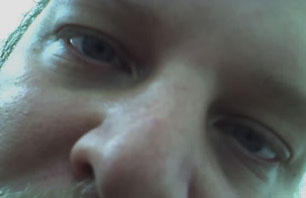Daily Verb"To be able"ได้ daì
daì
"To do"ทำ thahm
thahm
"To come"มา maa
maa
"To play"เล่น lèhn
lèhn
Daily Noun"Work"งาน ngaan
ngaan
"Vacation"เที่ยว thiaàò
thiaàò
"Business"ธุระ thoô râ
thoô râ
Daily Adjective"Much, many"มาก maàk
maàk
"A little"นิดหน่อย nît hnaăwy
nît hnaăwy
"Hot"ร้อน raâwn
raâwn
"Cold"เย็น yen
yen
"Feel cold"หนาว hnaáó
hnaáó
Daily Other Word"Is not"ไม่ใช่ maì chaì
maì chaì
"True"จริง jing
jing
"From"จาก jaăk
jaăk
Question Word"Why?"ทำไม thahm mai
thahm mai
Daily Tinglish"Office"ออฟฟิศ aăwf fît
aăwf fît
"Bar"บาร์ baa[r]
baa[r]
 daì
daì"To do"ทำ
 thahm
thahm"To come"มา
 maa
maa"To play"เล่น
 lèhn
lèhnDaily Noun"Work"งาน
 ngaan
ngaan"Vacation"เที่ยว
 thiaàò
thiaàò"Business"ธุระ
 thoô râ
thoô râDaily Adjective"Much, many"มาก
 maàk
maàk"A little"นิดหน่อย
 nît hnaăwy
nît hnaăwy"Hot"ร้อน
 raâwn
raâwn"Cold"เย็น
 yen
yen"Feel cold"หนาว
 hnaáó
hnaáóDaily Other Word"Is not"ไม่ใช่
 maì chaì
maì chaì"True"จริง
 jing
jing"From"จาก
 jaăk
jaăkQuestion Word"Why?"ทำไม
 thahm mai
thahm maiDaily Tinglish"Office"ออฟฟิศ
 aăwf fît
aăwf fît"Bar"บาร์
 baa[r]
baa[r]The letters for today are ผ, which is a "high PH", as in a P that lets a little more air through the lips than a regular P. The next letter is ย, which is the letter "Y".
The vowel for today is one that you have seen a lot of: ไ, which is AI. It is written before the consonant that it follows.
The tone marker for today is seen in the word ได้. It's that mark on top. It looks quite a bit like the -ั "A" that we learned about last week to the untrained eye, but it's not. When you see this tone, it is usually making a high tone into a falling tone. (Kind of like the ' from lesson #1.)
The verbs for this week are very important and very common in the daily language: ได้, daì (to be able) is used in just about every instance where you would use it in English, including "may", or "can" as well. "daì maí" means "May I?" and "maì daì" means "No you can't" or "I cannot."
The verb ทำ, thahm (to do/make) is also used in conversation. People ask you "thahm ă rai" which means "What are you doing?" You can answer "thahm aa haán" (I make food) or "thahm ngaan" (I'm working).
The verb มา, maa (to come) is heard a lot in conjunction with "neè" to make "maa neè", or "to come here", as well as the word "jaăk" to make "maa jaăk" or "to come from".
Another word that is very popular is เล่น, lèhn (to play). Thai people use this word a lot more than normal: They put it after any other word, it means to do it in an enjoyable not-too-serious fashion. So you could say, "thahm ngaan lèhn" would mean to work... but not too seriously. When you say "phuùt lèhn" (to talk, to play) it means to tell a joke, or to kid somebody.
The noun เที่ยว, thiaàò (vacation) is another word you hear a lot. Basically any time you go out for fun, you "þai thiaàò" (go on vacation). If you aren't "þai thiaàò", your only other option is "þai thoô râ" (go on business).
Another common word in Thai is มาก, maàk (much, many). It is the official superlative of the language, as in "phuùt maàk" (you talk too much), or "thahm ngaan maàk" (I'm working a lot). If you are talking about a real lot... just say "maàk maàk". Yup: Say it twice, and it means twice as much. The opposite of maàk is นิดหน่อย, nît hnaăwy (a little).
The two words ร้อน, raâwn (hot) and เย็น, yen (cold) are obvious, but be careful to use the word หนาว, hnaáó (to feel cold) when saying how you personally feel... otherwise you are describing your own body temperature, not how you feel.
The word จริง , jing (true) is used just as you would expect. However, if you say the word twice ("jing jing") it doesn't mean doubly true... it means "Really!" As in, "jing jing, maì phuùt lèhn" (Really. I'm not joking.)
Another important word to know is ไม่ใช่, maì chaì (is not). This is the negative of þen (to be). You don't say "maì þen"... you say "maì chaì".
The question word for the day is ทำไม, thahm mai (why?). You put this at the end of a sentence to ask for an explanation. "thahm thahm mai" means "Why do you do this?"
The tinglish words for the day are ออฟฟิศ, aăwf fît (office), and บาร์, baa[r] (bar).




1 comment:
I have lived in Thailand for the last two years, since i have been living here, i have found i can speak less Thai than when i came for holidays.
The reason for this is easy to explain ; when i came for a holiday i sat around a pool all day and the waiter would teach me one word a day.
Now i live here, their is no hotel pool or waiter and no learning of the Thai launguage
Post a Comment